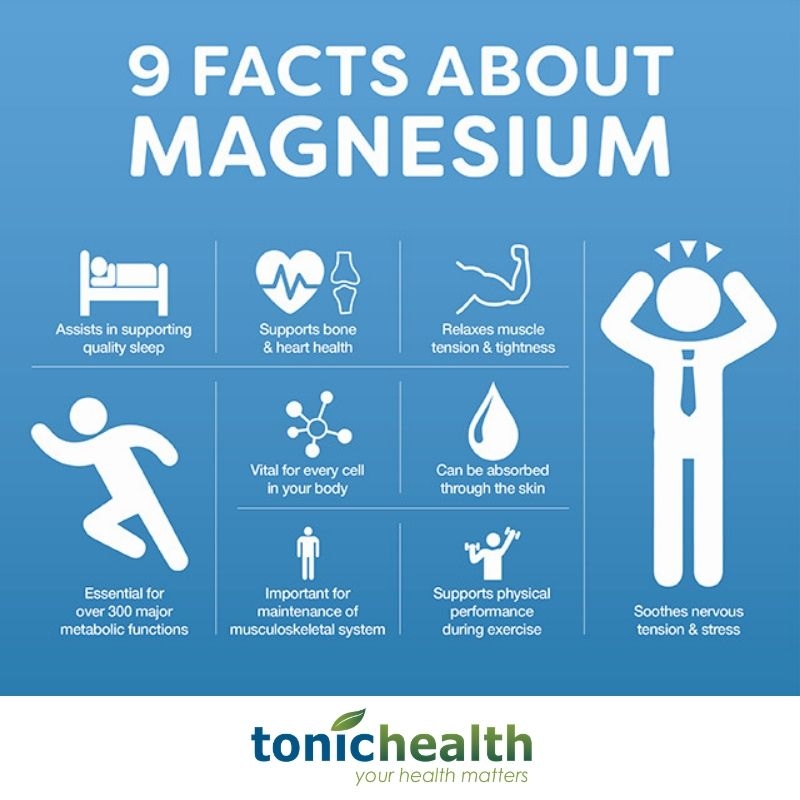We often say if there’s one mineral we should all be taking, it’s magnesium. Involved in over 300 enzymatic reactions in the body, you can imagine how this essential mineral influences almost everything from stress and sleep, to digestion and muscle relaxation.
Our bodies cannot synthesise magnesium, so we must consume it on a daily basis in order to prevent deficiency. Foods which are rich in magnesium include almonds, dark leafy greens and good quality dark chocolate (can’t complain about that one!).
Our magnesium levels become more rapidly depleted when we exercise, are stressed, or consume sugar (most of us fall in at least one of these categories). It is estimated that between 90-95% of the population is deficient or has below optimal magnesium levels. Almost everyone could benefit from a magnesium supplement in one form or another.

Some of the key benefits of magnesium are as follows:
- Improved sleep. Magnesium supports a deeper more restorative sleep by encouraging GABA production – a neurotransmitter which promotes sleep and relaxation.
- Stress reduction. Magnesium supports the nervous system and reduces the stimulation of our adrenal glands via the hypothalamic-pituitary-adrenal (HPA) axis. This reduces the amount of stress hormones we produce which in turn reduces feelings of stress and anxiety.
- Natural pain relief. Magnesium may be beneficial in relieving pain associated with headaches, migraines, period pain, muscle and nerve pain. This is thought to be due to magnesium’s role in relaxing muscles, nerves and blood vessels.
- Cardiovascular health. Magnesium plays a critical role in relaxing the muscles of the body – including the heart muscle. Magnesium is also involved in maintaining a good heart rhythm, blood pressure and cholesterol.
- Blood sugar control. Magnesium is required for the metabolism of glucose in the body, which is critical for good blood sugar control. Higher levels of magnesium are associated with a lower risk of type II diabetes.
- Improve symptoms of ADHD in children. Research has shown that low levels of magnesium are associated with higher levels of impulsivity, hyperactivity, and lack of focus. It has been suggested that magnesium may help improve cognitive function and reduce hyperactivity in children with ADHD.
- Improved athletic recovery. Magnesium enables muscles to relax, thus greatly improving recovery after exercise and feelings of muscle soreness.
- Relief from PMS. Research suggests that magnesium may help to reduce irritability, mood swings, period pain, and stress and anxiety.
Magnesium comes in a variety of different forms depending on what you’re most wanting it for. One of the most well absorbed (and least likely to give diarrhoea) varieties is the bisglycinate form. The citrate or amino acid chelate forms are also very well absorbed.
As a supplement you can get magnesium as a powder, tablet, capsule, tissue salt, or apply it topically as an oil or cream.
We also have some magnesium products which are safe for children, and also pregnant and breastfeeding mums. Please consult with us to find the best option for you.
Disclaimer: This blog post is intended for educational purposes only. Please do not use this information to diagnose or treat any health concerns you may have. This information is not intended to replace the advice given to you by a qualified health professional. Get in contact with a Tonic Health consultant or a relevant health professional if you need guidance on your individual health journey.
